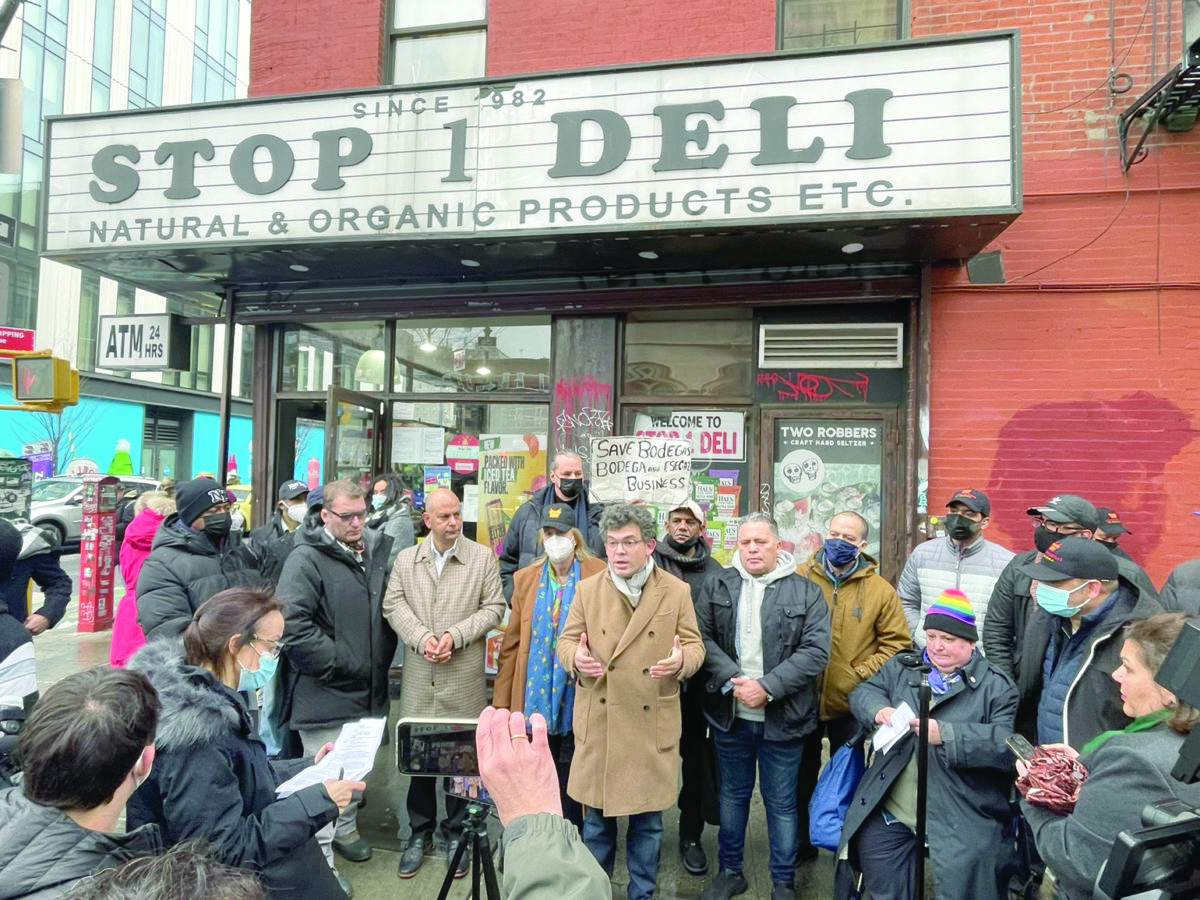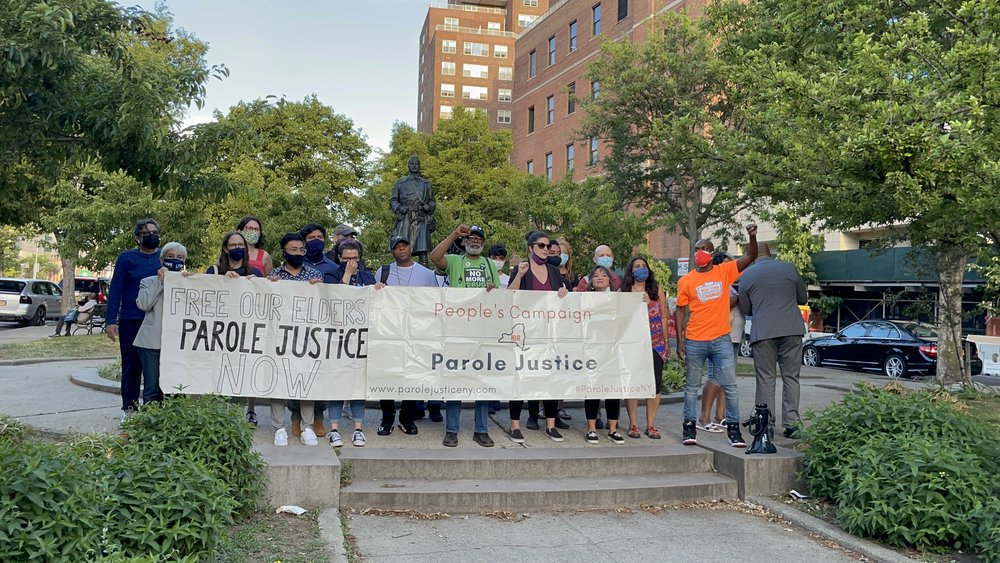BK — the progressive way

CM Shahana Hanif has been named one of the co-chairs of the progressive caucus (Credit CM Hanif’s office).
By Matthew Fischetti
New York City Councilman Lincoln Restler and Councilwoman Shahana Hanif aren’t cut from the same cloth.
Restler got his start with reform-oriented politics by co-founding the New Kings Democrats – a group that helps elected transparency-oriented leaders. Then he beat the Brooklyn machine in an unusually high profile race for District Leader before working for the De Blasio administration.
Hanif served as director for community engagement and organizing for then-Councilman Brad Lander’s office. But that’s exactly why they think they’ll be good co-chairs of the New York City council progressive caucus.
“I come from a more leftist, Democratic Socialist tenant organizing background, while also having navigated leading participatory budgeting and community engagement in my predecessor, Brad Lander’s office. And then he worked for the de Blasio administration. So we’ve got really two diverse track records, which I think really allows for a blossoming relationship and partnership,” Hanif said.
The New York City caucus was formed in 2009 and has gone through a few different iterations under the previous three different speakers and two mayors it has existed.
“It was a more contentious dynamic between the Progressive Caucus, Speaker Quinn, and Mayor Bloomberg. It was a much closer partnership with Speaker Melissa Mark-Viverito, who is one of the co-founders and original co-chairs of the caucus. The caucus perhaps played a less behind-the-scenes role during the Corey Johnson era,” Restler said.

CM Lincoln Restler has been named as a co-chair of the progressive caucus.
Hanif echoed similar sentiments, describing the previous progressive caucus under Diane Ayala and Ben Kalos as “dim and dead” and that now was a great opportunity to resuscitate the caucus as an “accountability machine” to the mayor.
When the caucus was founded it only had 12 members but this year has over 30 In the most historically diverse class of legislators yet with a high number of progressive-minded legislators. The caucus features some high-profile names like Majority Whip Councilwoman Selvena N. Brooks-Powers, Finance Chair Justin Brannan and even Council Speaker Adrienne Adams.
This caucus will be a “big tent progressive caucus,” as Restler described it, with a range of ideologies from more DSA styled members to center-left liberal reformers. Both chairs emphasized having robust dialogue and debate in order to ensure different versions of being progressive can be embodied in the work the caucus does going forward.
The progressive caucus is ready to flex its muscles under the more moderate Mayor Adams administration. Before he was even elected, Mayor Adams said that city council members who opposed solitary confinement had no desire to move the city forward but to simply be disruptive. After Mayor Adams released his preliminary budget, which includes a series of budget cuts, progressive members have attended rallies to fight against them.
Restler has emphasized that while challenging the Mayor on issues they disagree with is part of his responsibility as an independently elected representative that going to “nuclear war” with the mayor won’t help anybody. When Hanif was asked about some of the things she envisions being able to work on the Mayor with she paused.
“I guess that’s a tougher question for me,” Hanif said before laughing. “We haven’t necessarily articulated this in the caucus yet but, I think the mayor’s position on food justice in schools is something that I support and want to improve. But at this moment, with the preliminary budget out and seeing that nearly every single agency is seeing a reduction in funding, it is really tough to see where there’s alignment right now.”
Later in her interview with the Brooklyn Downtown Star, Hanif qualified her statement by saying she wants room for debate and dialogue with the Mayor, as she wants for internal disagreements within the caucus, but still said the mayor’s policy decisions so far will make that a harder possibility.
In order to really build power and be a true accountability machine against the mayor, Hanif said just having a high membership rate won’t cut it.
“Something that the leadership has been in active conversation around in whether we see value in having quantity or do we see value in really ushering in a caucus that is very deliberate about some working groups that we’ve identified? We really want participation, we want this to be an effective caucus,” Hanif said.
Hanif said that the working groups – covering topics like the budget, communication, policy and bylaws – are a measure to ensure that members are there in just name only but are actively helping the caucus.
Restler will be leading the principles of statement and bylaws group, Hanif is running the communication group, vice-chair Carmen De La Rosa will be in charge of the policy group, and the other vice-chair Jennifer Gutiérrez will be taking the helm on the budget.
Hanif and Restler also said they would consider booting members from the caucus if they don’t participate enough.
Hanif also emphasized that it will take an inside-outside strategy working with unions, outside groups like the Working Families Party and DSA, as well as community activists and organizers to build an adequate coalition that can secure wins.
The legislative agenda has yet to be finalized as the first meeting of the progressive caucus won’t be until April 1. In talks with members, Restler said that treating housing and healthcare as a human right is near the top of priorities for the caucus and that they hope to create “a budget agenda that advances our goals of housing justice, environmental justice, and racial justice.”
Hanif said that the top issues she heard from members surround creating a just budget and divesting money from the police budget.
“My hope is that we can lean into areas of common ground with the speaker and the mayor to successfully advance a robust agenda that delivers for New Yorkers,” Restler said. “We’re independently elected council members and it’s our collective prerogative to represent the values of our districts and we are going to craft an agenda that that does just that.”


